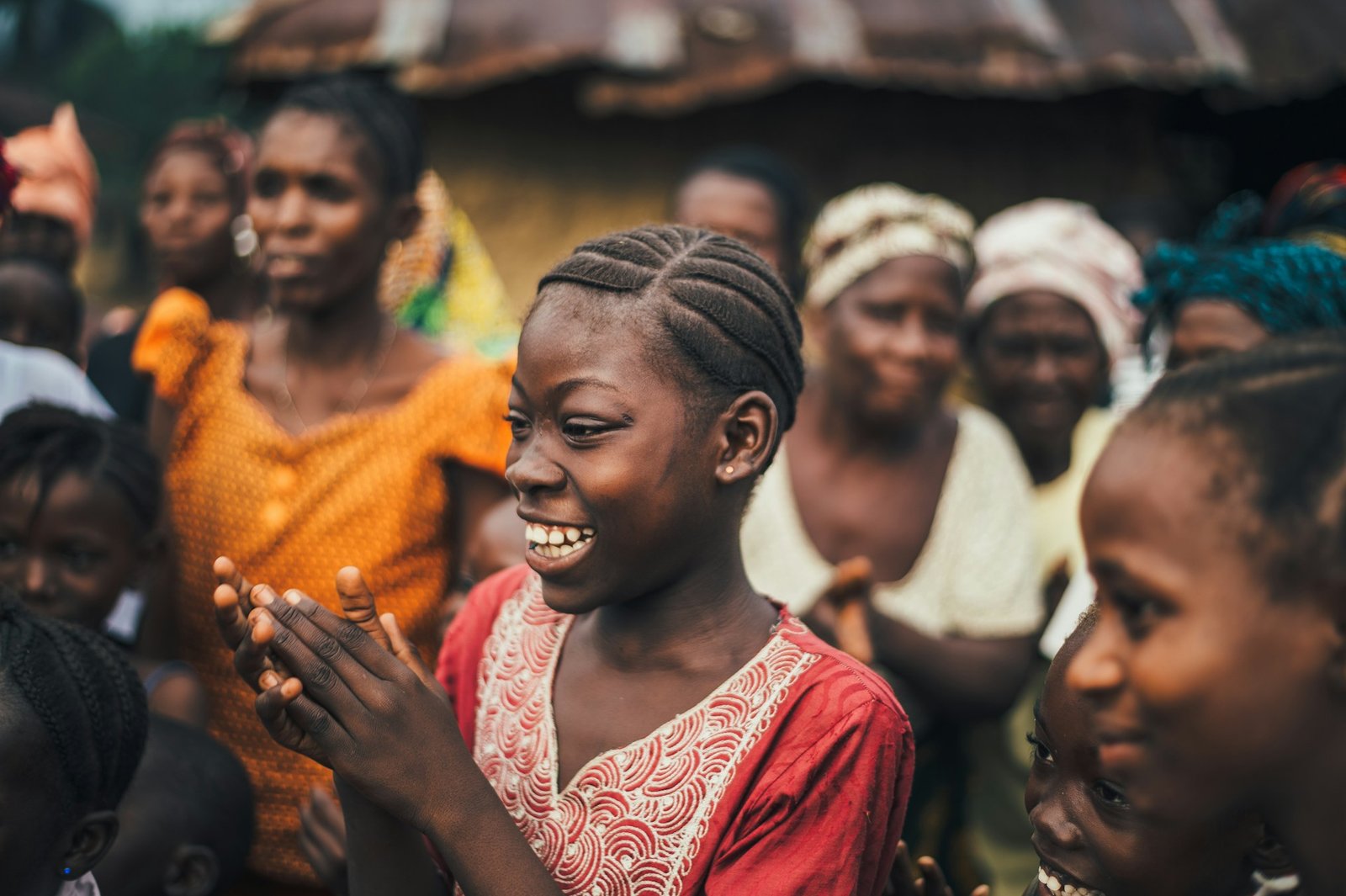
Understanding African Culture
African culture represents a vast and intricate tapestry, shaped by the continent’s diverse histories, languages, traditions, and lifestyles. Encompassing over 54 countries, Africa is a melting pot of various ethnic groups, each contributing to a rich cultural heritage. From the coastal regions of South Africa to the central lands of Cameroon and the northern expanses of Nigeria, Africa’s diverse cultural practices offer a unique lens through which to appreciate the continent’s collective identity.
The foundation of African culture lies in its languages, of which there are more than 2,000 spoken across the continent. These languages not only facilitate communication but also carry the essence of cultural values, beliefs, and traditions. The multilingual nature of Africa fosters a deep respect for diverse forms of expression, influencing art, music, and oral literature. Traditional music, characterized by rhythmic beats and unique instruments, often serves as an embodiment of cultural storytelling and communal bonding, resulting in a rich auditory heritage.
Artistic expression is another pillar of African culture, portraying the continent’s connection to its history and natural resources. Traditional crafts and contemporary artworks depict themes that reflect daily life, spirituality, and the environment, further emphasizing the deep-rooted relationship between people and their landscape. Cuisine, too, plays a significant role, with each region presenting a delightful array of flavors and culinary practices that are often tied to historical trade routes and local resources.
Furthermore, the historical context in which these cultures exist cannot be overlooked. Colonial legacies, migration patterns, and social changes have all left indelible marks on the cultural fabric of African societies. As a result, understanding African culture requires one to appreciate the complexities and nuances that arise from its diverse traditions, languages, and artistic expressions. Through this multifaceted lens, one can begin to appreciate the rich cultural heritage that Africa offers to the world.
The Role of Community in African Societies
African societies are characterized by strong communal ties that shape the collective identity of individuals within various nations on the continent. These bonds often transcend individual interests, fostering a sense of belonging and mutual responsibility among community members. Community plays a pivotal role across Africa, influencing cultural practices, social interactions, and everyday life scenarios in countries such as Cameroon, Nigeria, and South Africa. The interconnectedness of people within these communities is evident in traditional practices and ceremonies that promote unity and reinforce familial relationships.
In many African cultures, the community is organized around extended family groups, where kinship ties are essential for social cohesion. This cultural fabric creates networks that provide support during both joyous occasions and challenging times, such as birth, marriage, and loss. Celebrations and ceremonies, such as weddings or initiation rites, act as crucial events that strengthen these social ties, allowing individuals to express their identities while honoring their heritage. The communal aspect of these events encourages collective participation, where the entire community collaborates in celebrations, reflecting the importance of togetherness in maintaining cultural values.
Furthermore, the importance of community relationships influences various aspects of daily life, including decision-making processes, conflict resolution, and resource sharing. For instance, in resource-rich regions of Africa, traditional communal structures are often entrusted with stewardship of natural resources, emphasizing collective responsibility towards preserving and utilizing these assets sustainably. Understanding these dynamics is key to appreciating how community life influences social interactions, cultures, and economic practices across the continent. Overall, the rich diversity of African culture thrives on these communal relationships, which serve as a foundation for fostering unity and resilience within societies.
Art, Music, and Expression in African Culture
Africa is renowned for its rich cultural diversity, which is vividly portrayed through its art and music. Each region within the continent, including countries like Cameroon, Nigeria, and South Africa, exhibits unique artistic traditions that reflect local beliefs, customs, and shared histories. Art in Africa is not merely a craft but a vital form of communication and identity, serving both aesthetic and functional purposes. Intricate masks, vibrant textiles, and powerful sculptures often showcase distinctive patterns and colors that relate to the cultural narratives of various ethnic groups.
Moreover, the artistic expressions in African culture are deeply intertwined with spirituality and community. For instance, in many communities, traditional dance and performances are accompanied by elaborate costumes, underscoring the importance of visual storytelling. Colors are utilized intentionally; red can symbolize struggle, while green often represents growth and fertility, reflecting the natural resources that the continent offers. The intricate designs and symbols carry significant meanings, allowing artists to convey messages and preserve history through their works.
Music also plays a pivotal role in African culture, serving as a universal language that brings people together. From the rhythmic beats of traditional drumming to the melodic sounds of contemporary genres, music is instrumental in celebrations and storytelling. Each region has its unique styles, often incorporating local instruments, which highlights the diversity across the continent. Genres such as Afrobeats from Nigeria and traditional Khoisan songs from South Africa illustrate how music evolves while maintaining its cultural essence.
In conclusion, the artistic and musical expressions across Africa are emblematic of its rich traditions and heritage. These cultural forms not only reflect the continent’s diversity but also reinforce communal bonds and identity among its people, making them essential elements of African life. Through art and music, Africa continues to celebrate its rich tapestry of cultures, fostering understanding and appreciation among diverse audiences worldwide.
Cuisine, Language, and Spirituality: The Essence of African Life
Africa, as a continent, showcases an extraordinary blend of culinary traditions that reflect its diverse cultures and communities. The richness of African cuisine stems from the varying climates, landscapes, and natural resources found across the continent. For instance, West African countries such as Nigeria and Cameroon are renowned for their vibrant stews and spicy dishes, often prepared using locally sourced ingredients like cassava, yams, and a variety of legumes. Similarly, South Africa’s culinary scene is characterized by its mix of indigenous and immigrant influences, resulting in dishes such as braai and bobotie that highlight the country’s varied heritage.
Food in Africa extends beyond mere sustenance; it is a vital component of social interaction and cultural identity. Meals are often communal, fostering a sense of belonging among family and friends. Festive occasions are marked by the preparation of traditional dishes that serve as symbols of celebration and unity. As such, African cuisine plays a crucial role in preserving cultural practices and reinforcing community ties.
Language is another vital aspect of African culture, acting as a vehicle for communication and a tool for sharing knowledge. The continent is home to over 2,000 languages, each representing a unique heritage and identity. Major languages such as Swahili, Hausa, and Amharic not only facilitate communication but also encapsulate the rich histories and philosophies of the people who speak them. Moreover, languages often carry proverbs and idioms that reflect the values and experiences of various communities, helping to maintain cultural continuity.
Spirituality and belief systems are deeply intertwined within the fabric of African life, often influencing cultural practices, social structures, and day-to-day activities. Various religions, including traditional African beliefs, Christianity, and Islam, coexist within the continent, contributing to its rich spiritual tapestry. Spiritual practices, rituals, and ceremonies denote important life events and are pivotal in fostering a sense of identity and belonging among individuals and communities.
In conclusion, the interplay of cuisine, language, and spirituality profoundly shapes the cultural identity of Africa. Understanding these aspects allows for a deeper appreciation of the continent’s rich traditions and a recognition of the diverse expressions of heritage that contribute to its vibrant tapestry.
At Light House Streak, we streak the lines.
